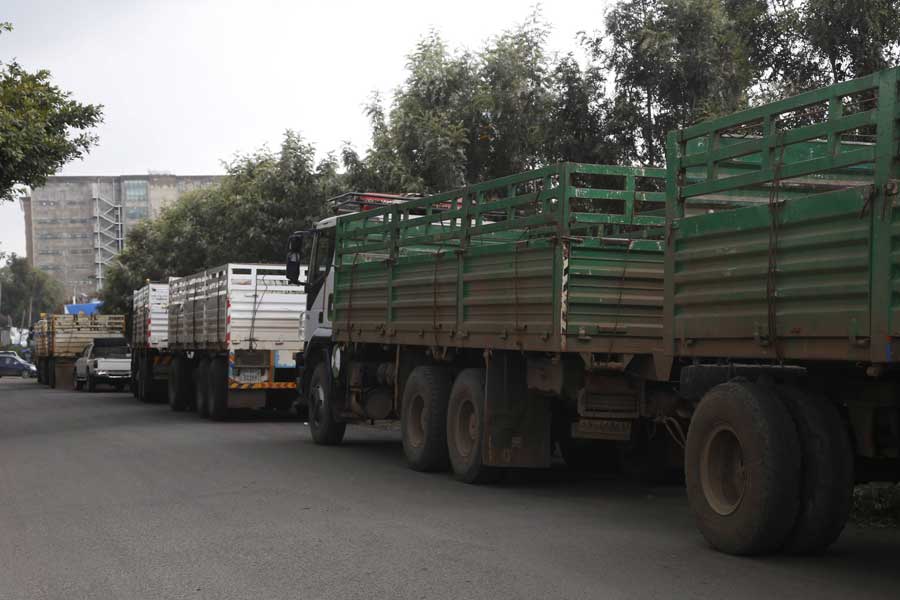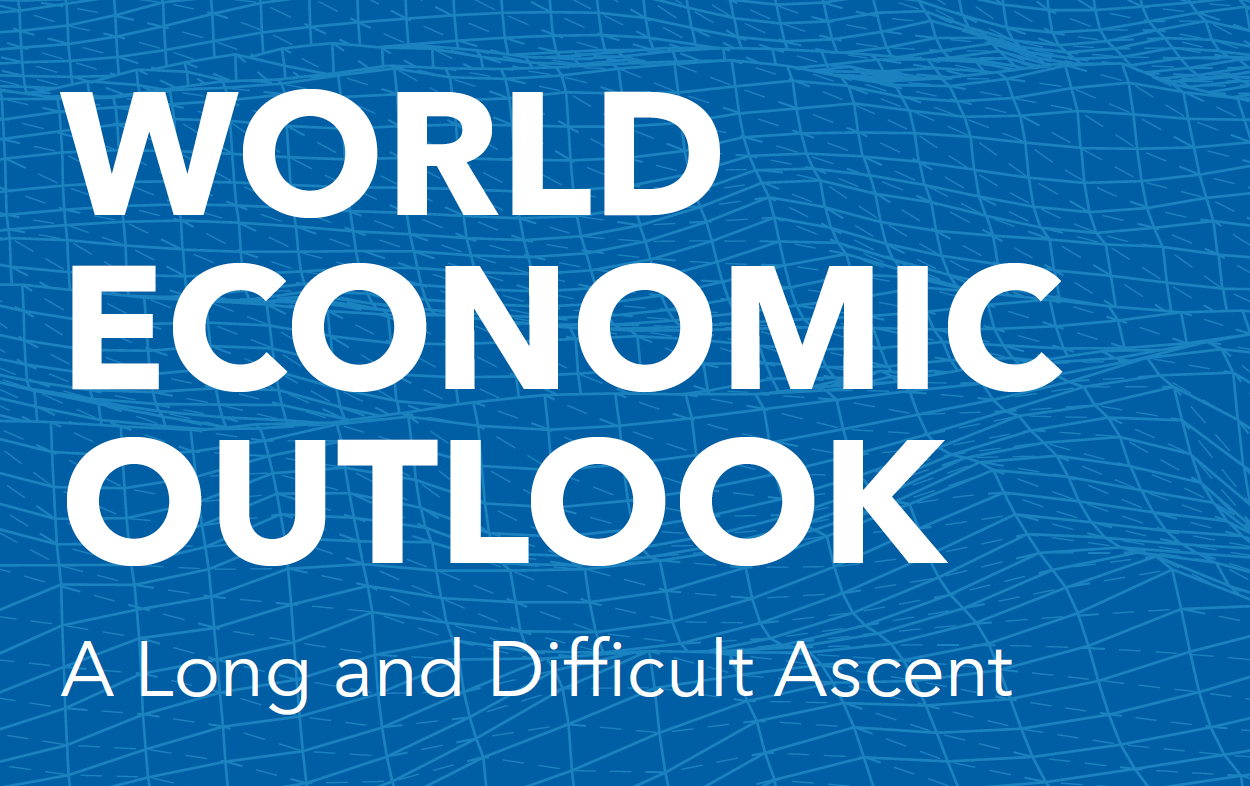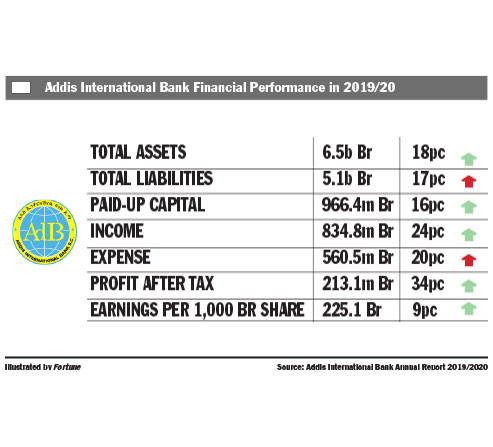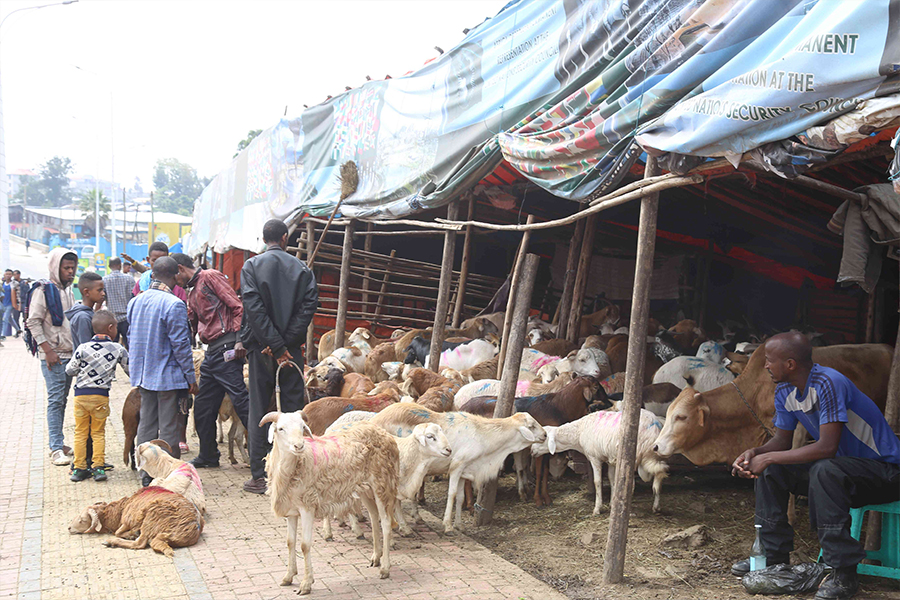
Radar | Jul 13,2019
May 20 , 2023
By Eden Sahle
I met a new mother out on the rainy street of Addis Abeba with her infant. She was selling vegetables and roasted corn under a plastic cover to shield themselves from the pouring rain.
She gets up early in the morning to buy vegetables and corn from wholesalers. Whether the family eats or not depends on the income of the day as she stays out on the streets but often goes home with little profit or no sales on some occasions.
Next to the lady were many others vending similar items while their dresses were wet and their slippers soaked.
It is heartbreaking to watch these women suffer to feed their families. Most of them are widows and single mothers with young children. Their lives are filled with traumas and no form of support.
Most of them live in a dilapidated narrow room made of iron sheets. The houses are constructed without getting permission from the district office, which translates to no electricity, water supply and toilet. Their children attempt to study at night using street lights and candles. Bathing is a luxury which may happen once in several weeks, fetched from people with pipelines.
They are content if they find their house in one piece at the end of each day. Eviction is one of their many fears as officials from the city administration may show up anytime. It is an unpleasant experience they happen to go through multiple times, leaving their belongings and iron sheets behind.
These events do not make envisioning a bright future likely for the children. They are enduring adversities with their mothers, who are doing everything they can to sustain their lives. They are living in constant fear of losing their sole parent or little of what they have.
The prevalence of poverty is apparent in Ethiopia. UNDP’s simulation analysis indicates that poverty has risen due to the shocks and the rising cost of living, especially for food. It has impacted urban and war-affected areas the most.
For someone observing from afar, these ladies have all the right reasons to have a mental breakdown. But these women have developed into stronger individuals despite their circumstances. They have a greater appreciation for life. Their families smile at customers as if everything is going smoothly.
The mothers believe that the work they put in due to hardships makes them stronger. They acknowledge that trauma does not steal their hope for a better future and have created an incredible narrative around their tragedies that could lead them out of poverty and into greater hope.
The ability to manage their emotions and understand the feelings of people around them has led to a great relationship with their children. They have a resource-empty home but the joy and laughter are palpable.
They do not try to make sense of their difficulties and brutal traumas. While they do not praise poverty they say it has allowed them to develop optimism and resilience.
Mealtimes are big celebrations and gratitude times. Although uncertain, their home, filled with love and gratitude, is inspiring. Proof that happiness is not attained by ticking off a list of accomplishments or possessions.
These women have chosen to appreciate and accept their lives and focus on what they can control. They are determined to end generational poverty by sending their children to school.
The children are motivated and encouraged to take their education seriously as it holds the solution to their misery, working hard to dig their way out of poverty.
People must develop a sense of gratitude and appreciation for the present moment, allowing them to experience happiness even in the most painful times. It does not mean praising poverty but developing optimism and resilience from the tough experience.
PUBLISHED ON
May 20,2023 [ VOL
24 , NO
1203]

Radar | Jul 13,2019

Fortune News | Nov 07,2020

Covid-19 | Oct 13,2020

News Analysis | Dec 09,2023

News Analysis | Dec 08,2024

Commentaries | Aug 25,2024

Covid-19 | Jul 18,2021

Fortune News | Apr 03,2021

Agenda | Sep 10,2022

Commentaries | Mar 23,2024

My Opinion | 132038 Views | Aug 14,2021

My Opinion | 128435 Views | Aug 21,2021

My Opinion | 126362 Views | Sep 10,2021

My Opinion | 123981 Views | Aug 07,2021





Dec 22 , 2024 . By TIZITA SHEWAFERAW
Charged with transforming colossal state-owned enterprises into modern and competitiv...

Aug 18 , 2024 . By AKSAH ITALO
Although predictable Yonas Zerihun's job in the ride-hailing service is not immune to...

Jul 28 , 2024 . By TIZITA SHEWAFERAW
Unhabitual, perhaps too many, Samuel Gebreyohannes, 38, used to occasionally enjoy a couple of beers at breakfast. However, he recently swit...

Jul 13 , 2024 . By AKSAH ITALO
Investors who rely on tractors, trucks, and field vehicles for commuting, transporting commodities, and f...

Jul 12 , 2025
Political leaders and their policy advisors often promise great leaps forward, yet th...

Jul 5 , 2025
Six years ago, Ethiopia was the darling of international liberal commentators. A year...

Jun 28 , 2025
Meseret Damtie, the assertive auditor general, has never been shy about naming names...

Jun 21 , 2025
A well-worn adage says, “Budget is not destiny, but it is direction.” Examining t...

Jul 13 , 2025 . By YITBAREK GETACHEW
The Addis Abeba City Revenue Bureau has introduced a new directive set to reshape how...

Jul 13 , 2025 . By BEZAWIT HULUAGER
Addis Abeba has approved a record 350 billion Br budget for the 2025/26 fiscal year,...

Jul 13 , 2025 . By RUTH BERHANU
The Addis Abeba Revenue Bureau has scrapped a value-added tax (VAT) on unprocessed ve...

Jul 13 , 2025 . By NAHOM AYELE
Federal lawmakers have finally brought closure to a protracted and contentious tax de...